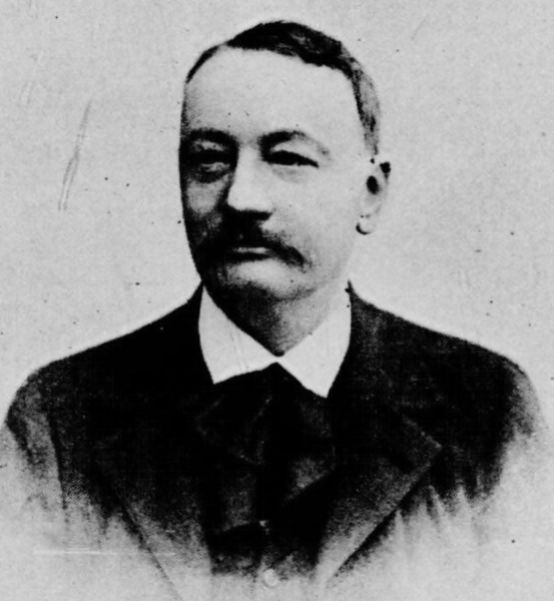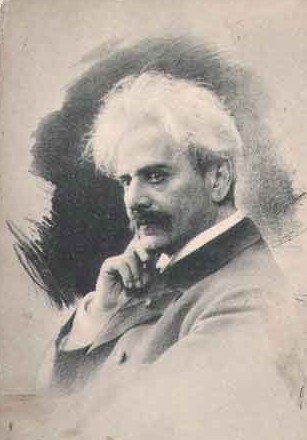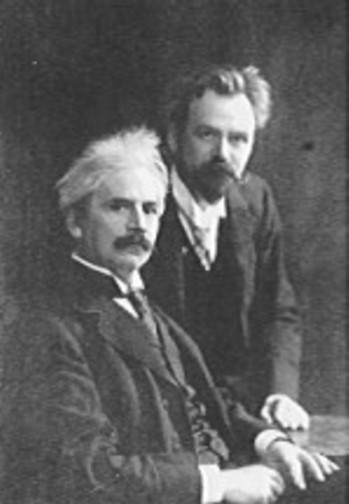<Back to Index>
- Composer Jean Émile Auguste Bernard, 1843
- Cellist and Composer David Popper, 1843
PAGE SPONSOR

Jean Émile Auguste Bernard (28 November 1843, Marseille - 11 September 1902, Paris) was a French Romantic composer and organist. Bernard studied at the Paris Conservatoire; his organ teacher was François Benoist and his piano teacher was Antoine François Marmontel. He was organist at the Notre Dame des Champs from 1885 until his retirement in 1895.
His Fantasy and Fugue won the 1877 prize of the Société de Compositeurs de Paris. His Violin Concerto was dedicated to and performed by Pablo de Sarasate in 1895 at the Conservatoire. Other works include a Suite for Violin and Piano, a Concertstück for Piano and Orchestra, a Rondo for Cello and Orchestra, and a Divertissement for Doubled Wind Quintet (Op. 36), which was first written for the Société des Instruments à Vent.


David Popper (June 16, 1843 - August 7, 1913) was a Bohemian cellist and composer.
He was born in Prague, and studied music at the Prague Conservatory. He studied the cello under Julius Goltermann (1825 - 1876), and soon attracted attention. He made his first tour in 1863; in Germany he was praised by Hans von Bülow (who was also a son - in - law of Franz Liszt), who recommended him to a position as Chamber Virtuoso in the court of Prince von Hohenzollern - Hechingen in Löwenberg. In 1864, he premiered Robert Volkmann's Cello Concerto in A minor, Op. 33, with Hans von Bülow conducting the Berlin Philharmonic. He lost this job a couple of years later due to the prince's death.
He then made his debut in Vienna in 1867, and was made principal cellist at the Hofoper. From 1868 to 1870 he was also a member of the Hellmesberger Quartet. In 1872, he married pianist Sophie Menter, a pupil of Liszt. She later joined the staff at the St. Petersburg Conservatory. In 1873, Popper resigned from his post at the Hofoper so as to continue his tours with his wife on a larger scale, giving concerts throughout Europe. Popper's and Menter's marriage was dissolved in 1886.
That year, Liszt recommended Popper for a teaching position at the newly opened string department at the Conservatory at Budapest. In Budapest, he participated in the Budapest Quartet with Jenő Hubay. He and Hubay performed chamber music on more than one occasion with Johannes Brahms, including the premiere of Brahms's Piano Trio No. 3 in Budapest, on December 20, 1886.
Popper died in Baden, near Vienna.
Among his notable students were Arnold Földesy, Jenő Kerpely, Mici Lukács, Ludwig Lebell and Adolf Schiffer (teacher of János Starker).
David Popper was one of the last great cellists who did not use an endpin.
Popper was a prolific composer of music for his instrument, writing four concertos, a Requiem for three cellos and orchestra (1891) and a number of smaller pieces which are still played today, including the ever-popular cello solo piece Tarantella. His shorter showpieces were written to highlight the unique sound and style native to the cello extending the instrument's range to heights with pieces such as Spinnlied (Spinning Song), Elfentanz (Dance of the Elves), or the Ungarische Rhapsodie (Hungarian Rhapsody), which was published by the Friedrich Hofmeister Musikverlag. He also wrote instructional pieces. Popper is also famous for his High School of Cello Playing (Op. 73), a book of cello études that is used almost universally by advanced cello students.
An old edition of the Grove Dictionary of Music and Musicians described him thus: "His tone is large and full of sentiment; his execution highly finished, and his style classical."